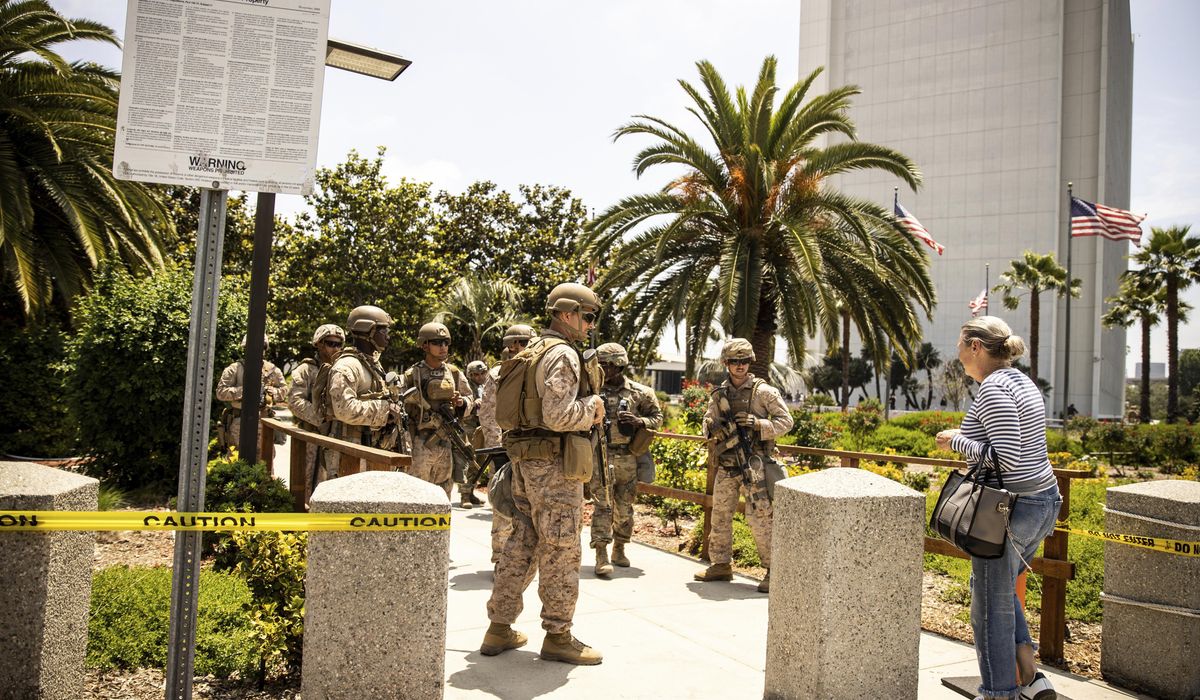ARTICLE AD BOX
The Supreme Court said Tuesday it will speed the case over President Trump’s tariffs to its calendar, slating it for oral argument the first week of November.
In a brief order, the justices said they would take up the case and set the quick hearing date after the Trump administration urged fast action.
Solicitor General D. John Sauer had said lower court rulings finding Mr. Trump lacked the power to impose his large tariffs have upended the president’s ability to negotiate better trade deals for the U.S.
“The stakes in this case could not be higher,” Mr. Sauer told the high court in a brief.
Treasury Secretary Scott Bessent said if the court doesn’t rule until June and it ends up striking down the tariffs, the government could have to refund $1 trillion in revenue.
Mr. Trump claims powers for broad tariffs under the International Emergency Economic Powers Act, saying the country’s national and economic security are at stake.
Mr. Sauer said Mr. Trump’s power to impose tariffs comes from the law’s provisions granting the president the ability to “regulate importation.”
“The power to ‘regulate importation’ encompasses the power to impose tariffs or duties on imports,” Mr. Sauer told the justices.
The U.S. Court of Appeals for the Federal Circuit, in a 7-4 ruling late last month, disagreed, saying Congress would have said tariffs in the law if it meant tariffs.
Tariffs are a tax on foreign goods that are brought into U.S. markets. The importer of record, often a U.S. company, pays the duty and not foreign governments.
Mr. Trump has moved to impose two large swaths of tariffs — one global levy and one specifically on China, Mexico and Canada, which he says aren’t doing enough to stop the flow of dangerous drugs into the U.S.
Blue states and small, import-reliant businesses sued over the levies, saying they unfairly burden their operations by adding new costs. They say Mr. Trump usurped constitutional powers that belong to Congress, and that Mr. Trump’s rollout has been damaging.
“The president’s chaotic implementation of that purported authority, which changed by the day and wreaked havoc on capital markets and the economy, illustrates both the breadth of powers that the president claims and the danger of unlimited authority in this domain,” the blue states, led by Oregon, said in a brief to the Supreme Court.
Jeffrey Schwab, senior counsel at the Liberty Justice Center, said his clients are confident the Supreme Court “will recognize that the President does not have unilateral tariff power under IEEPA.”
Sector-specific tariffs on cars, steel and aluminum were imposed under alternate authorities and are not at risk in this legal fight.
Tariffs have brought in more than $150 billion in tax revenue through U.S. customs so far this year, compared to roughly $60 billion around the same time last year.
Mr. Trump said tariffs could ostensibly be used as a chief revenue source, as it was in the 1800s before the income tax took hold.
The U.S. is collecting outsized revenue because Mr. Trump imposed a blanket 10% tariff on all imports earlier this year. He recently finalized tariffs from 15% to 41% on dozens of countries, raising levies to their highest levels in more than a century.
Besides revenue, Mr. Trump says tariffs give him leverage over other nations to end wars or achieve other aims. He also says tariffs will benefit American workers by forcing companies to set up shop in the U.S. to avoid the levies.

 6 hours ago
15
6 hours ago
15








 English (US) ·
English (US) ·